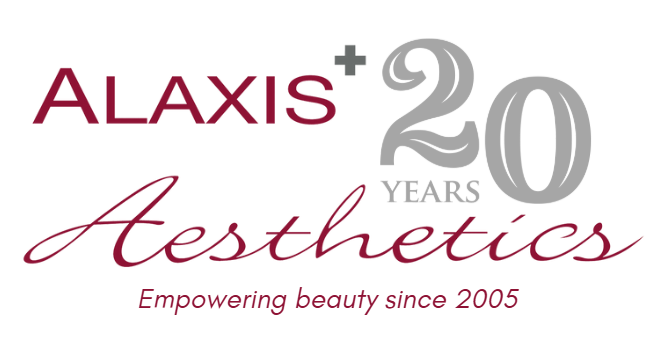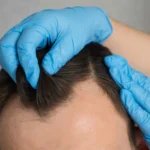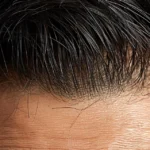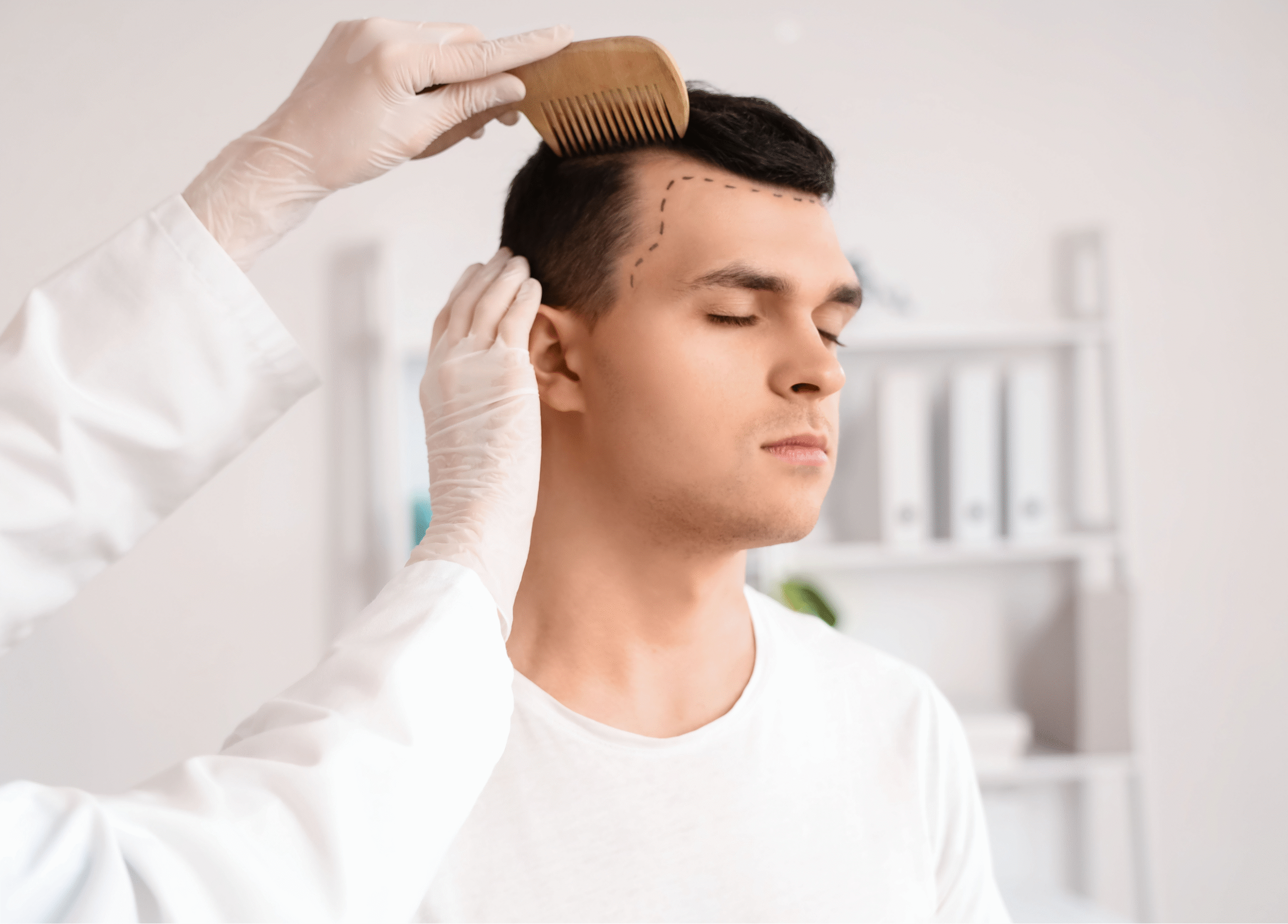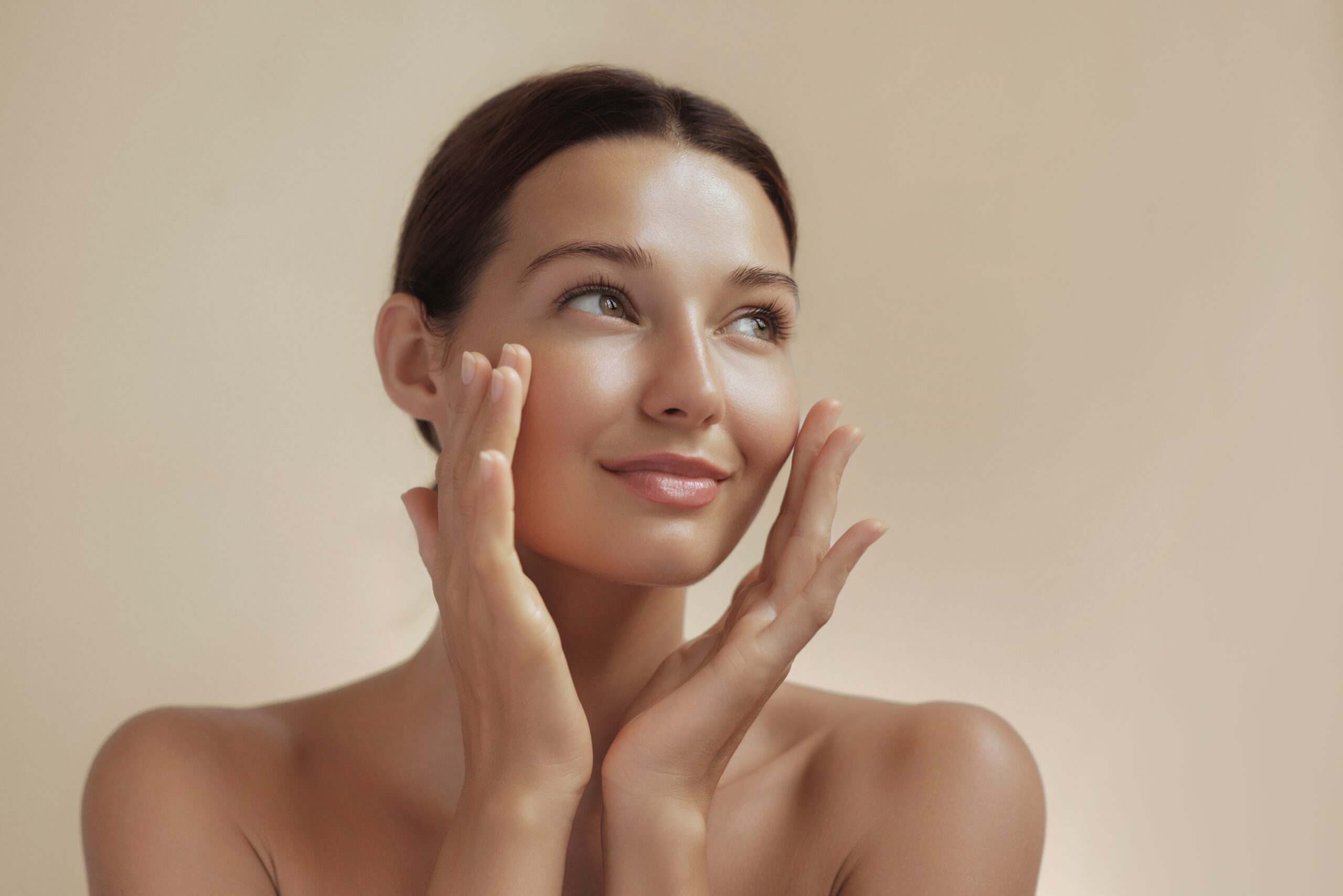Can a Healthy Diet and Lifestyle Prevent Hair Loss?

Hair loss can be distressing, affecting your appearance and self-esteem. If you worry about potential hair loss, a healthy diet and lifestyle may be worth considering.
In this article, we will explore just how eating well and taking care of your body can make a difference.
How Can a Healthy Diet and Lifestyle Prevent Hair Loss?
Vitamins and Minerals
Hair health starts from within, and a nutrient-rich diet is fundamental to maintaining it. Your hair requires various vitamins and minerals to grow and remain strong. Essential nutrients include:
- Vitamin A: Vitamin A is crucial for producing scalp sebum, keeping the scalp and hair hydrated.
- B Vitamins (especially Biotin): B vitamins, particularly Biotin (B7), help convert nutrients into energy and help produce keratin, the primary protein for hair, skin, and nails.
- Vitamin C: Vitamin C helps produce collagen to strengthen the hair shaft and follicles while facilitating iron absorption, a vital mineral for hair growth.
- Vitamin D: Vitamin D helps to regulate hair growth and shedding phases, ensuring new hair follicles are formed and existing follicles function optimally.
- Vitamin E: Vitamin E helps protect hair cells from damage caused by free radicals. The antioxidant also promotes blood circulation in the scalp so hair follicles receive essential nutrients.
- Iron: Iron aids in transporting oxygen in the blood, including to the hair follicles.
- Zinc: Zinc keeps the oil glands around hair follicles functioning properly and promotes cell reproduction, which is essential for hair growth.
Protein Intake
Eating sufficient protein is key for the structural integrity of your hair shaft. The amino acids in proteins, such as cysteine, are key keratin components that give hair strength and resilience.
Protein is also essential for the growth and repair of hair tissues. Hair follicles are rapidly dividing cells in the body, requiring a constant supply of amino acids to produce new hair cells.
Hydration
Drinking plenty of water will maintain the hydration levels of your hair and scalp and help transport essential nutrients to your hair follicles. Adequate hydration ensures that vitamins, minerals, and other nutrients for hair health are effectively delivered to the scalp and hair roots.
Healthy Fats
Including healthy fats in your diet, particularly omega-3 fatty acids, helps nourish the hair and support scalp health. They also support the production of natural oils that moisturise the scalp and hair, preventing dryness and brittleness.
Additionally, omega-3 fatty acids’ anti-inflammatory properties help lower inflammation in the scalp, creating a better environment for hair growth and preventing hair loss.
Limit Processed Foods
Avoid eating processed foods as they often contain unhealthy fats and sugars, negatively affecting hair health. Unhealthy fats can increase inflammation in the scalp, potentially damaging hair follicles and leading to hair loss.
Meanwhile, sugar in processed foods can also cause blood sugar spikes, leading to increased production of androgens, which can shrink hair follicles and accelerate hair loss.
Avoid Smoking and Limit Alcohol
Smoking can disrupt blood flow to the scalp, reducing the oxygen and nutrients that reach hair follicles and impairing hair growth and health. Similarly, drinking alcohol excessively can lead to dehydration and nutrient deficiencies, both of which can adversely affect hair. Ceasing smoking and moderating alcohol intake can be more beneficial for hair health.
Regular Exercise
Engage in at least 30 minutes of moderate exercise most days of the week. Exercise improves blood circulation, including to the scalp, ensuring hair follicles receive adequate nutrients and oxygen. Regular physical activity also aids in reducing stress, which can contribute to hair loss.
Manage Stress
Chronic stress is associated with hair loss conditions such as telogen effluvium, where hair prematurely enters the resting phase and falls out. Managing stress through meditation, yoga, deep breathing exercises, and ensuring adequate sleep can help maintain hair health.
Hair and Scalp Care
Proper hair and scalp care are essential for preventing hair loss. Wash your hair every two days to keep the scalp clean and free from buildup. A scalp massage would also be a good addition to your hair care routine to improve blood circulation and promote hair growth.
Why Am I Still Experiencing Hair Loss?
Even with a healthy diet and lifestyle, you may still experience hair loss. This can be due to several factors beyond your control:
- Genetics: Hereditary hair loss, or male and female pattern hair loss is primarily determined by your genes.
- Hormonal Changes: Conditions such as pregnancy, menopause, and thyroid issues can disrupt hormonal balance and lead to hair loss.
- Medical Conditions: Certain diseases and chronic illnesses can cause hair loss.
- Medications: Some medications can lead to hair thinning or loss.
- Nutrient Deficiencies: Despite a healthy diet, some people may have nutrient absorption issues or deficiencies contributing to hair loss.
Hair Loss Treatment in Singapore
While a healthy diet and lifestyle can support hair health and potentially prevent hair loss, it can be hard to completely manage hair loss on your own. If you’re experiencing significant hair loss despite your best efforts, it may be time for professional help. A hair and scalp specialist can diagnose your hair loss condition and recommend appropriate treatments.
Alaxis Medical & Aesthetic Clinic provides hair loss treatments in Singapore. We provide FUE hair transplant treatments where hair follicles are physically implanted into thinning areas of the scalp to promote permanent hair growth. We also provide laser therapy and medication for hair loss.
Book an appointment to learn more about our hair loss treatments and costs.
